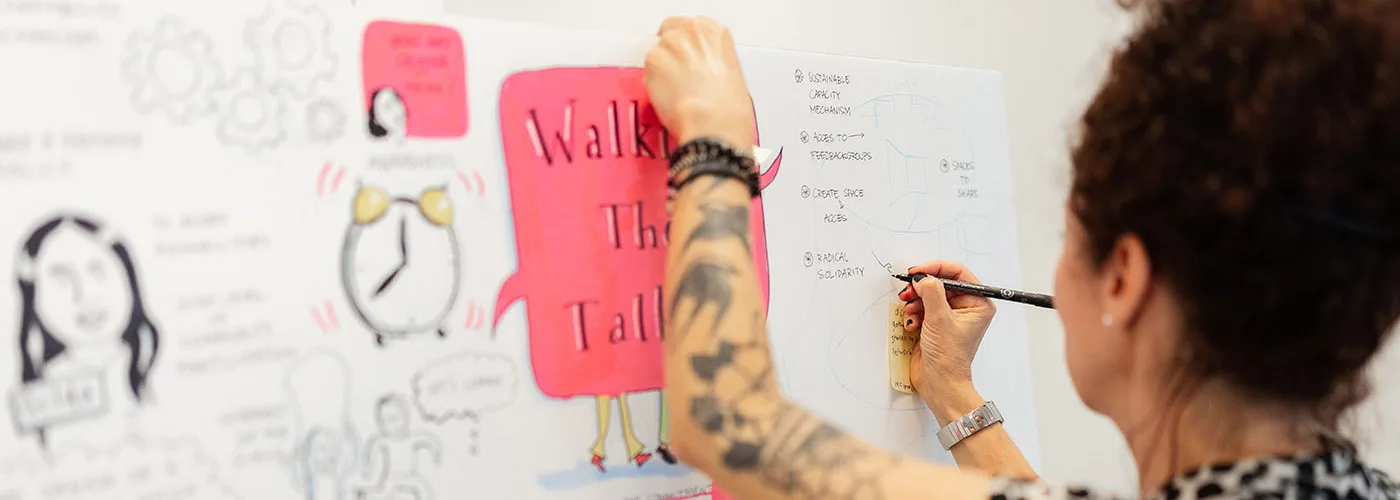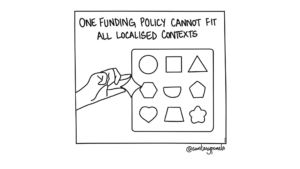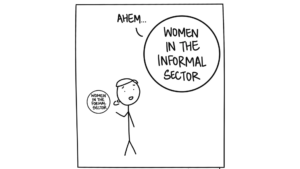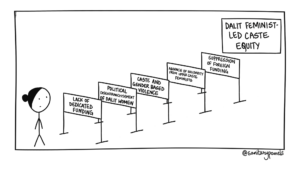Key information
Countries: Kenya, India and Bangladesh
Researchers: Megha Kashyap and Ipsita Dwivedi
Advocacy summary
The research challenges colonial legacies in foreign development funding policies which perpetuate structural inequities and patriarchal violence in the majority world particularly in Kenya, India and Bangladesh. The authors challenge donor imposed priorities which limit organizational autonomy and promote western frameworks at the expense of southern feminist voices. The core argument of the research is that minority world countries promote feminist foreign policies while simultaneously advancing their own political agendas, often overlooking intersectional issues like caste and gender. There is a need to promote reparative justice models as opposed to colonial funding structures. Advocacy can focus on challenging development assistance which advances economic interests.
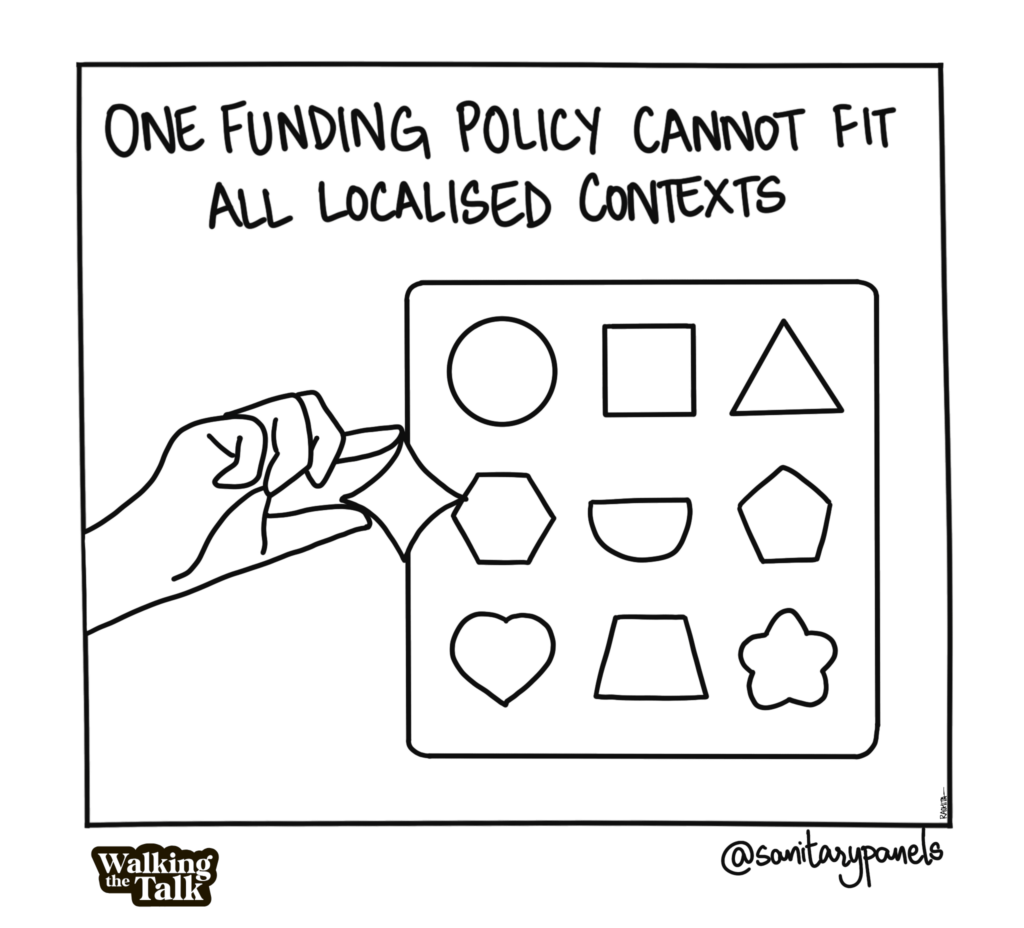
Recommendations
For ODA donors, Governments, Private funders, Philanthropy and INGOs:
- Recognize that structural racism is real and exists in funding – it is a collective responsibility for all stakeholders to dismantle it.
- Seek and invest time in fostering meaningful relationships with local partners and grantees. These must be non-extractive, non-hierarchical working relationships rooted in respect for local knowledge and perspectives.
- Pay the same remuneration package to local people that is paid to ‘expat’ hires – Reassess the need to hire them for positions abroad and reflect on whether the ‘need’ is seen through a white supremacist, colonial lens.
- Prioritize flexible funding for feminist movements – start now, urgently, to address gender injustice, underdevelopment and inequality.
- Recognize the colonial legacies and harm that foreign aid has caused nations and start to work on reconceptualizing development funding as reparations.
- Create spaces to reflect on embedding transformative change into funding streams – especially centering marginalized voices and those living at the intersections of identities such as caste, class, religion, gender and sexuality. Value local knowledge and integrate it into programmatic funding.
- Reduce the structural barriers to accessing funding, ensuring that grassroots NGOs and networks are eligible to apply for funding without needing to become more ‘Western’.
- Simplify accountability and compliance mechanisms for grantees. Decentralized accountability mechanisms, ensuring that community voices are central to them. Redistribute decision-making powers, giving local organisations and communities more autonomy.
- Encourage local NGOs to hold you to account, question and challenge power dynamics without fear of losing funding – Be open to criticism and evolve accordingly.
- Alongside local advocates, call for more accessible and better functioning regulatory mechanisms that promote transparency and efficiency without overwhelming and excluding smaller, women-led organisations and networks.
For International NGOs and Private Philanthropy:
- Be mindful of communication materials. Adopt an anti-racist and decolonial lens in all internal and external communication.
- Adopt clear milestones to transfer power and resources to the Majority World feminist organizations and networks, being mindful of coloniality in the space. Be aware of the process of reducing investments in Minority World offices and expanding in Majority World movements.
- Consult and co-create – Engage grassroots experts and organizations on key issues and co-create programmatic, advocacy, and influencing work with local partners.
- Promote and encourage decolonial research – centering the voices of the communities, especially those living at the intersections. Use the research for policy advocacy and programmatic change.
- Discourage the practice of white feminism in deciding or influencing feminist causes and funding priorities – actively listen to and center southern feminist voices and experiences in funding streams.
- Go beyond tokenistic and performative ‘Diversity, Equity, and Inclusion’ policies and practices. Hire Majority World people in senior leadership and decision-making roles and give them space to make decolonial, anti-racist, feminist, institutional change. Reflect on who holds power in the organization and shift access to the most marginalized in decision-making.
- Avoid the tokenistic use of ‘localization’ to defend neoliberal approaches to funding.
- Evaluate partnerships with local organizations to accommodate their needs. Adopt mutually acceptable, accountable, and supportive leadership and approaches.
- Hold governments accountable for their complicity in the genocide of Palestine. Otherwise, your funding efforts to address different forms of injustice will be understood as hollow and hypocritical expressions of geopolitics and coloniality.
- Trust local NGOs and communities to identify needs and make appropriate decisions.
Authors

Megha Kashyap
Megha Kashyap, Principal Investigator, is currently based out of London. Megha is completing a PhD in Gender Studies from SOAS, University of London. She also works as the Decolonizing Research Fellow at London South Bank University, leading the institutional commitment to decolonize the curriculum, research and practice. Megha is originally from India and has worked in the gender and development space for over 14 years. She started her career working on a Gender Budgeting project, moving on to work on campaigning, influencing and advocacy on GBV and VAW. Before a full-time academic research role, Megha worked as a policy specialist at an INGO. Having experienced racism: overt and covert, across her many travels and study programs in Europe, Megha’s commitment to decolonize and anti-racism comes from her lived experiences.

Ipsita Dwivedi
Co-Investigator. Ipsita is a gender rights researcher and communications specialist based in New Delhi, India, with over five years of experience in the intersection of gender and health. Her work is rooted in developing creative, visually engaging strategies to enhance the accessibility and impact of advocacy efforts. She is a Communications and Knowledge Management Officer at Samyak, focusing on urban health and gender. Her previous research centred on advancing sexual health rights and young feminist funding. It focuses on producing evidence-based insights and building a discourse to address systemic inequities within gender frameworks.

